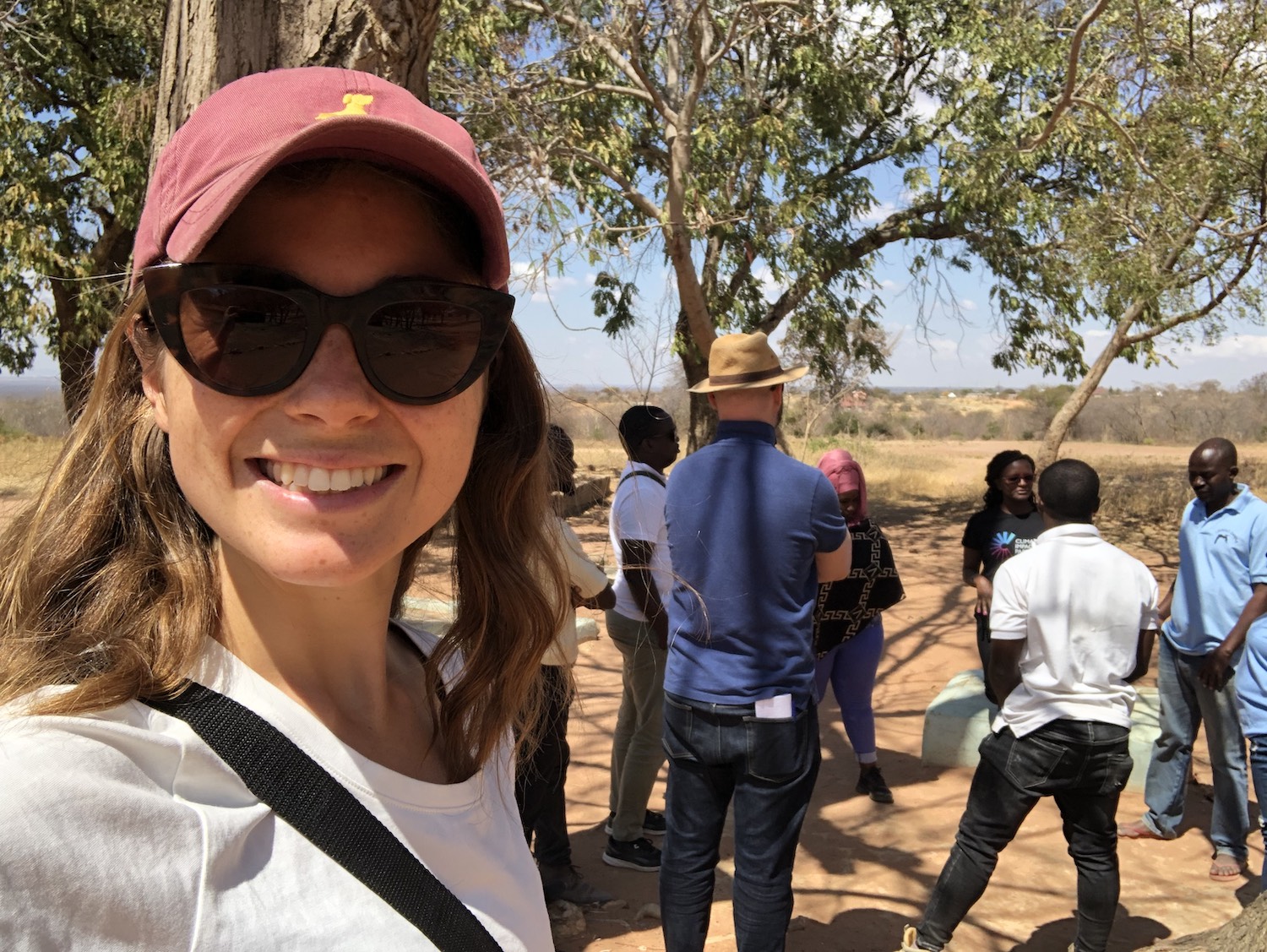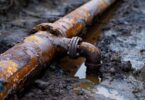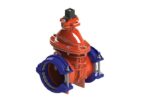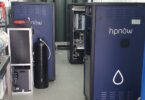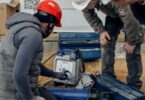Today water scarcity in Africa is driven by many physical and economic factors; including and not limited to rapid population growth and climate change, leaving 40% of the 783 million people in the sub-Saharan African region without access to fresh water resources to meet their needs.
Whether water is used for drinking, domestic use or food production, access to safe and readily available water is important for public health globally. Organisations like eWATER are accelerating progress towards global SGDs by increasing access to clean water by implementing well-managed water services.
Private water operator, eWATERservices, currently runs a complete water service for rural villages in Sub-Saharan Africa with 217,000 consumers in over 100 villages. With the use of eWATER’s Smart Taps, Smart Sensors, integrated mobile payment technology, and harnessing technology, eWATER monitors the water systems and manages the revenue generated from users paying affordable fees via a Smart Tag credited with mobile money.
eWATER’s team of local engineers maintains the systems resulting in over 95% reliability, which you can see yourself in real-time on their live data dashboard. This is crucial for improving the lives of many in Africa who live without access to safe water services.
In sub-Saharan Africa, eWATER has installed 893 Smart Taps across Tanzania, The Gambia, and Ghana and they are extending their Smart Taps into Kenya shortly.
Despite eWATER’s efforts to expand and deliver more clean water to more people, every day they find themselves tripping up over well-meaning but poorly-executed programs trying to do water ‘the usual way’. There is a dangerous top-down naive narrative, driven by vested NGO interests and funded by donors that should, by now, know better. This urgently needs addressing, as the reality playing out in thousands of villages across sub-Saharan Africa is that when these organisations go into a village and give a water service for free, it is not valued, and it isn’t sustainable. Getting clean water piped from the ground, or nearby rivers cost money every single day, and the professional management of that process also costs money; if there is no money going into the system, it cannot be sustained.
However, right now NGO’s are coming into villages in The Gambia where eWATER has delivered water at 95% availability, 24/7 for 5 years and they are drilling new boreholes, and offering free water. The villagers still want eWATER to stay as they know the free taps will break, and they want the option of eWATER’s Smart Taps and their guaranteed water provision.
Unfortunately, eWATER doesn’t get any government money or donations and so eWATERservices can’t be an insurance provider. eWATER can’t let their Smart Taps sit there unused, tanks sitting idle, solar panels getting dusty, just waiting for an NGO system to stop working. So sadly at that point, eWATER has to pull out. To read about this example in full: READ MORE.
Before any tap goes into the ground, eWATER conducts detailed scoping to assess the current water supply used by, and the location of, the community. This scoping feedback ensures Smart Taps are placed no more than 300m from any home in the locations eWATER operates in. With eWATER’s local Smart Maintenance Teams, engineers are positioned correctly to oversee zones and use data from the live data dashboard to ensure time is best spent in places where attention is required. This enables eWATER to provide professional and successful water services at an affordable rate to rural communities.
Before any tap goes into the ground, eWATER conducts detailed scoping to assess the current water supply used by, and the location of, the community. This scoping feedback ensures Smart Taps are placed no more than 300m from any home in the locations eWATER operates in. With eWATER’s local Smart Maintenance Teams, engineers are positioned correctly to oversee zones and use data from the live data dashboard to ensure time is best spent in places where attention is required. This enables eWATER to provide professional and successful water services at an affordable rate to rural communities.
There is a huge need for more water accessibility (in the last 20 years, 37 million more Africans have been without water and 247 million more without sanitation), but eWATER delivers this with far more success than many alternatives thanks to its advanced technology. eWATER fully integrates three technologies: Mobile money, IOT, and NFC to provide clean, affordable water without any data loss. It is game-changing to be able to provide this service in remote villages at a cost that makes financial sense for water authorities. eWATER’s live data also allows their Smart Maintenance Teams to make repairs within hours, not weeks. All of this stands in stark contrast to other water service providers who install outdated hand pumps and ask someone in the village to stop their career to manage the pump and collect cash physically.
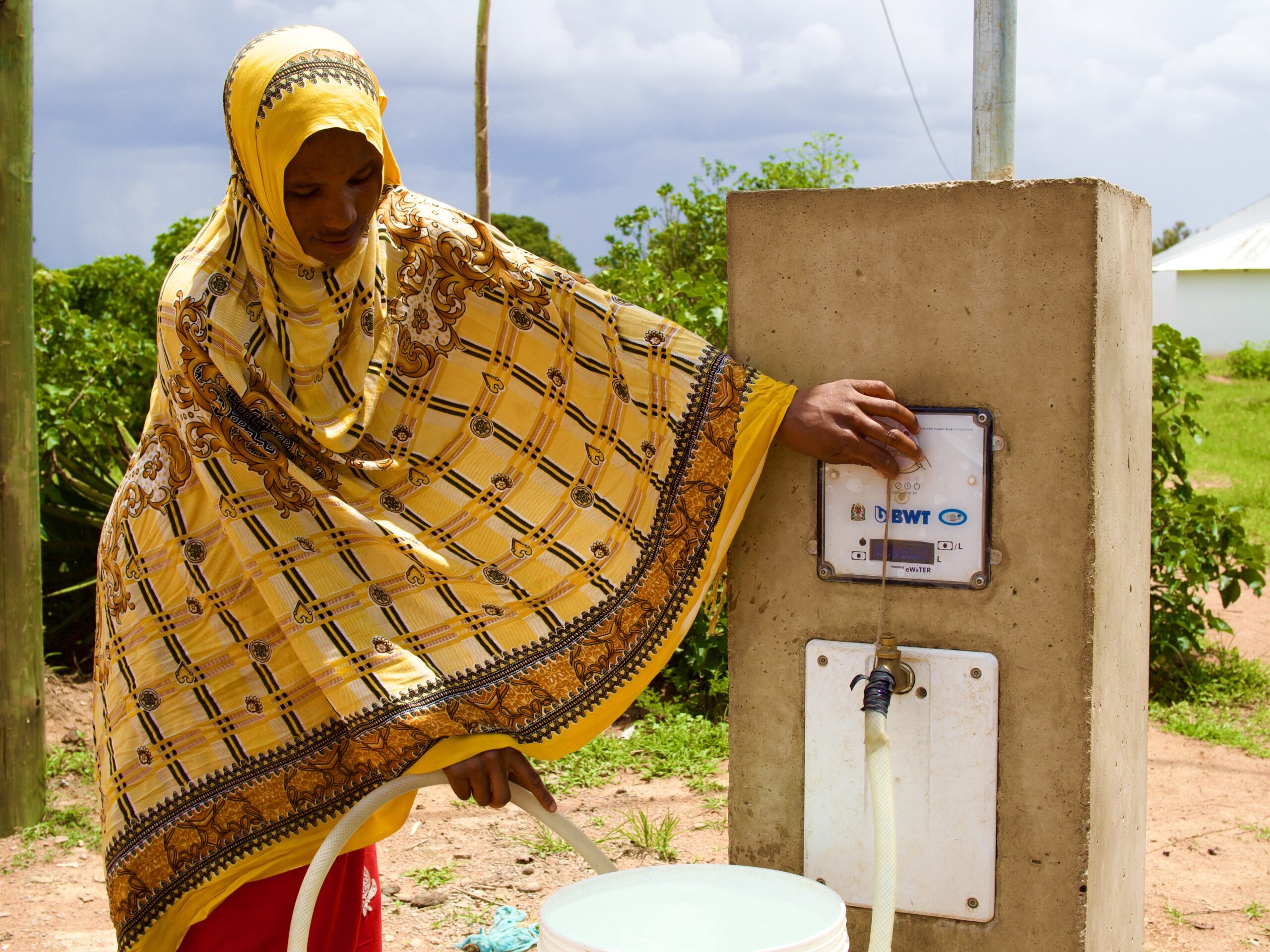
Case Study: eWATERservices In Tanzania
In Zanka, Tanzania, eWATER serves the needs of the community in a couple of different ways. The village has 11 eWATER Smart Taps serving 3,136 people, of which 2 Smart Taps have been customised to serve the needs of a medical dispensary and school.
The Medical Dispensary
The medical dispensary works with eWATER by having one dispensary eWATERtag. At the start of the day, the nurse will hold the tag to the Smart Tap which has a pipe leading from the tap end to their dispensary water tank. When the tank is full, they remove the tag and can turn on their taps within the dispensary whenever they like to get eWATER straight to their taps via the tank. This means that their water is readily available at all hours. It has served 78,776 litres of water.
The impact of this is enormous. It enables the safe treatment of villagers 24/7. Previously the nurses would have to ask the village water agent to unlock the tap, causing risky delays in treatment.
“I would like to give my sincere thanks to eWATER for providing us with their service. Previously if we needed to get water from the taps the agent had to be there. When he is not around it meant we had to wait for them to get back. It was difficult because, as you know, any health facility needs to have access to clean water at any time of the day. Since the installation of the Smart Taps life here at the dispensary has been so good because we have water 24/7. We use that water mostly for cleaning and during labour.”
– Vaileth Mzika (Nursa at Zanka Dispensary)
The Primary School
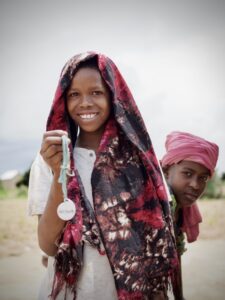
Having water available for the students allows them to stay at school during the day instead of returning home for clean water, meaning more time in school. It also ensures that there is no need to resort to drinking dirty water out of thirst. All of this leads to more healthy children who can receive an education without the disruption caused by returning home for safe water or sickness.
The Future of eWATERservices
eWATER has just been awarded an ‘Innovative Project’ prize at the Kenya International Water and Sanitation Conference 2023. With this prize recognising the work done by eWATER in the past, the future is also looking good, as they aim to provide clean water to 1 million low-income rural consumers by 2028 for a minimum of 10 years, and this will soon include those in rural communities in Kenya.
As they continue their efforts to tackle some of the biggest issues with water provision in Africa, we agree with eWATER when they say that anything less than 95% water availability at any time of the day means people are leading difficult, disruptive, unhealthy lives. In the 21st Century that is a catastrophic failure.
We look forward to hearing more from eWATERservices and their crowning achievements.



